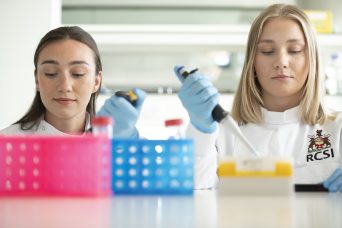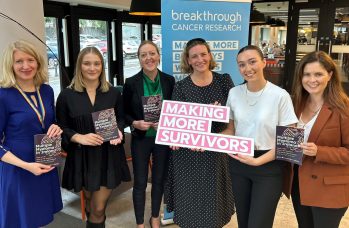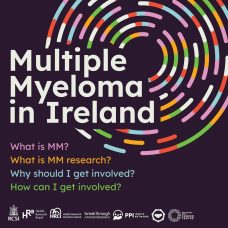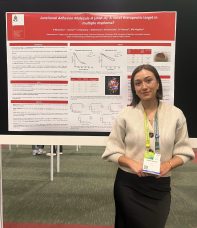Developing a non-rodent xenograft model of multiple myeloma and its use in testing novel antagonists of JAM-A signalling

Dr. Ann Hopkins and Prof. Siobhán Glavey
Multiple Myeloma is an incurable blood cancer that causes certain immune cells to build up to abnormal levels in people’s bone marrow. It is often diagnosed late because people have few symptoms early on. However, it can then progress very quickly to aggressive disease, weakening bones all over the body and interfering with the production of healthy blood cells. Multiple Myeloma causes the immune system to fail and causes severe infections.
Treatments for Multiple Myeloma are not able to cure the disease. To make new treatments it is necessary to make models/mimics of the disease in research laboratories. Relative to cancers such as breast and brain, there are still very few patient-relevant lab models of Multiple Myeloma. There are also fewer successful therapies for Multiple Myeloma than many other cancers.
Using the joint expertise of a blood cancer clinician and a cancer scientist, this grant will supervise two student projects to develop new experimental models/mimics of Multiple Myeloma and use them to test potential new treatments for Multiple Myeloma. These new treatments centre around a biological pathway called JAM which is turning out to be important in Multiple Myeloma, and is known to be important in other cancers.
This grant brings together two expert researchers; one in myeloma and one in the biological pathway (JAM) who will work together for the first time on myeloma. In combination, this proposal offers a solid foundation for success in developing new models and treatments in Multiple Myeloma, alongside a strong connection to patients and issues of relevance to their care. Working on this research are PhD Student Niamh McAuley and MSc Student Izabela Drozdz in RCSI.

Niamh McAuley and Izabela Drozdz
In September 2023, during Blood Cancer Awareness Month, This team launched an information source for Multiple Myeloma (MM) patients. This booklet ‘Multiple Myeloma in Ireland’ which was developed with MM, advocates, researchers, and clinicians will help people to make informed decisions about their health and research. It will also aid people on their journey to understand research and the powerful role it plays in high-quality work being done in Ireland now and in the future.


Dr. Ann Hopkins, Izabela Drozdz, Dr. Frances Drummond, Orla Dolan, Niamh McAuley, Prof. Siobhan Glavey
Download the Multiple Myeloma In Ireland Booklet
Research Findings
Poster Presentation
Niamh McAuley presented a poster at the EACR-AACR Basic & Translation Research Conference 2024 titled, “Junctional Adhesion Molecule-A (JAM-A): A novel therapeutic target in multiple myeloma?”

Congratulations to Niamh who won the ‘best poster’ prize at the 2024 Haematology Association of Ireland (HAI) Annual Conference in Belfast for her research into the discovery of new targets specific to high risk myeloma










 Contact
Contact